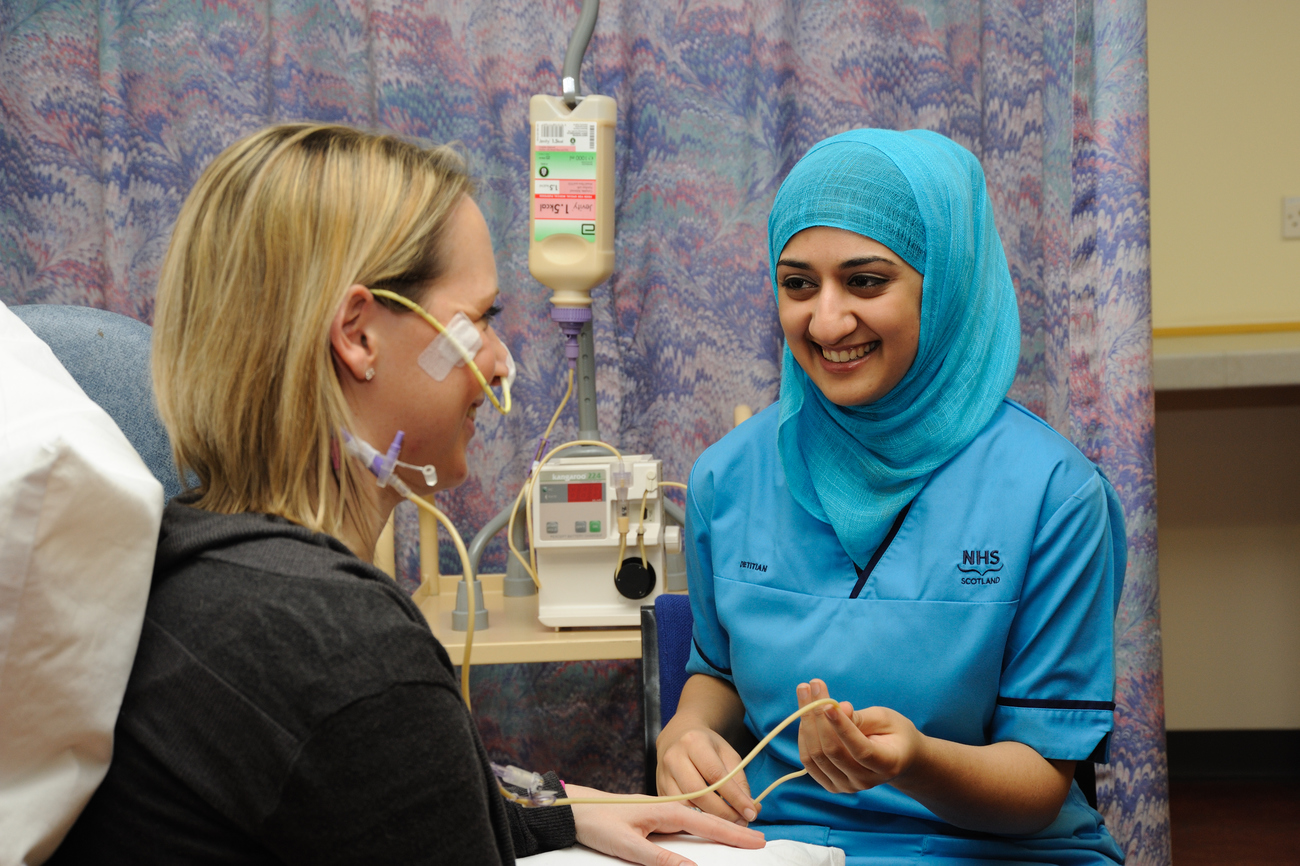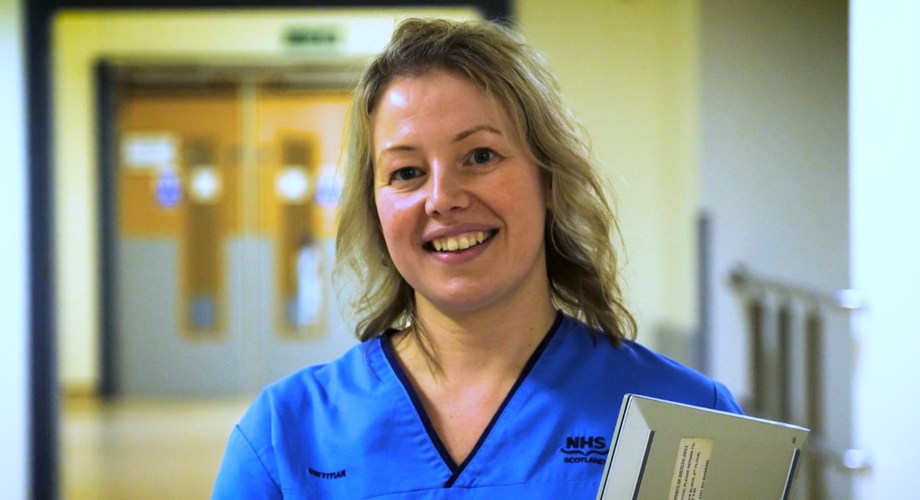Previous
Diagnostic radiographer
You'll need a degree in Dietetics accredited by the Health and Care Professions Council to become a dietitian in the NHS.
Dietitians provide practical advice about nutrition and diet using the most up-to-date public health and scientific research on food, fitness, and disease. They help people of all ages make appropriate food and lifestyle choices.
Dietitians are the only qualified healthcare professionals that assess, diagnose, and treat dietary and nutritional problems at an individual and wider public health level.
To work in the NHS, dietitians must be registered with the Health and Care Professions Council (HCPC).

To get on a course that could lead to a career as a dietitian, useful subjects include:
Speak to your guidance teacher about subjects offered at your school.

You may find it helpful to get some healthcare experience by doing a work placement or volunteering. You’ll get training, increase your knowledge, and learn new skills. This could help you when applying to university, college or a new job with NHSScotland.
To become a dietitian, you'll need to complete a pre-registration degree programme approved by the HCPC.
Most universities accept a wide range of qualifications, giving you the option of applying directly from school or going to college first. At college, you could do an HNC in a science-based subject before applying to university to do an undergraduate programme.
Widening participation supports adult learners who want to go to university. If you’re an adult with few or no qualifications, you could get into higher education through the Scottish Wider Access Programme (SWAP). Many universities also provide access programmes to help you get the degree entry qualifications you need.
Three universities in Scotland offer undergraduate programmes in Dietetics approved by the HCPC:
Pre-registration undergraduate programmes take 4 years full-time.
If you have an undergraduate degree in a life science subject, you can do a postgraduate diploma or a master's in Dietetics. Postgraduate programmes usually take one to two years.
You should contact individual universities to find out about specific entry requirements.
Dietitians understand how different foods affect the body.
You'll work with people who have diet-related disorders and provide them with evidence-based practical advice.
You could work with people who have:
You’ll also help people who need:
You may also train, support, and advise other AHPs, healthcare support workers, and students.
You'll need these skills:
Dietitians usually work in a team with other healthcare professionals, including:
You could work in:

Check out our 360 videos to learn more about the role of a dietitian.
You'll get to know Diane, a specialist cystic fibrosis and respiratory dietitian at NHS Greater Glasgow and Clyde. Find out how she motivates and empowers people to make positive changes in their lives and improve their nutrition and eating habits.
During your career, you must undertake Continuing Professional Development (CPD). It will help you to keep your knowledge and skills up to date and continue to meet the HCPC CPD standards for registration.
The British Dietetic Association (BDA) offers a 5-year programme to support your CPD activities. Find out more about CPD for dietitians.
Depending on your career interests, you may choose to specialise in a clinical area, such as cancer, gastroenterology or diabetes. You could work with specific groups of people, such as the elderly, children, or those with learning difficulties.
Within NHSScotland, there is a clearly defined route for career progression. You’ll start your career as a newly qualified dietitian. There are lots of opportunities to process your career in specialist and advanced roles. With experience, you could work at management level with responsibility for a team, department, and budget.
Self-employment is also an option. It might involve combining freelance work for organisations like the NHS with other activities, such as writing for health publications.
You may choose to do further training and move into teaching and research. There are also opportunities in sports, health education, public relations, scientific research, and journalism.
When you become a qualified dietitian, you must register with the HCPC to work in the NHS. You can also join the British Dietetic Association (BDA).

Discover the range of AHP careers you can choose in the NHS.
Allied health professions
Our blog includes how-to guides, case studies, and career resources.
Discover more